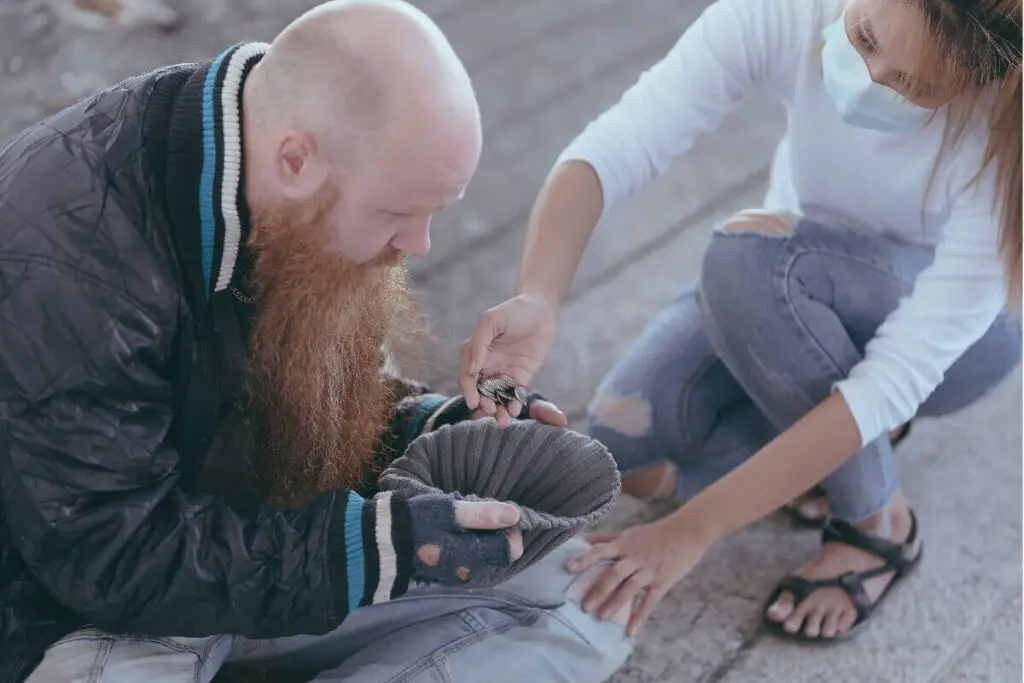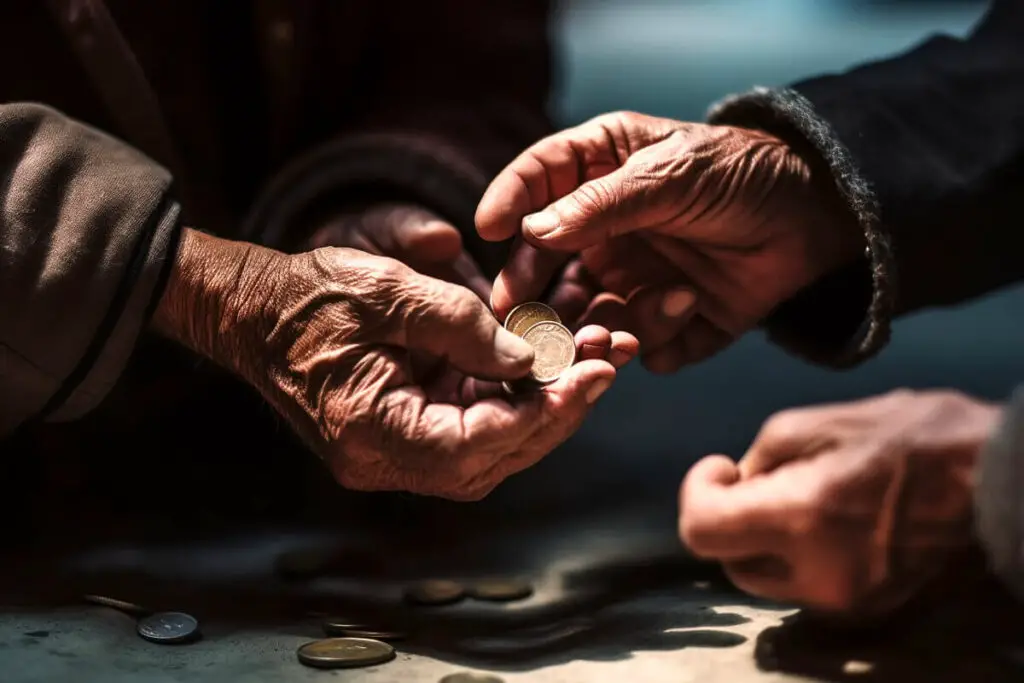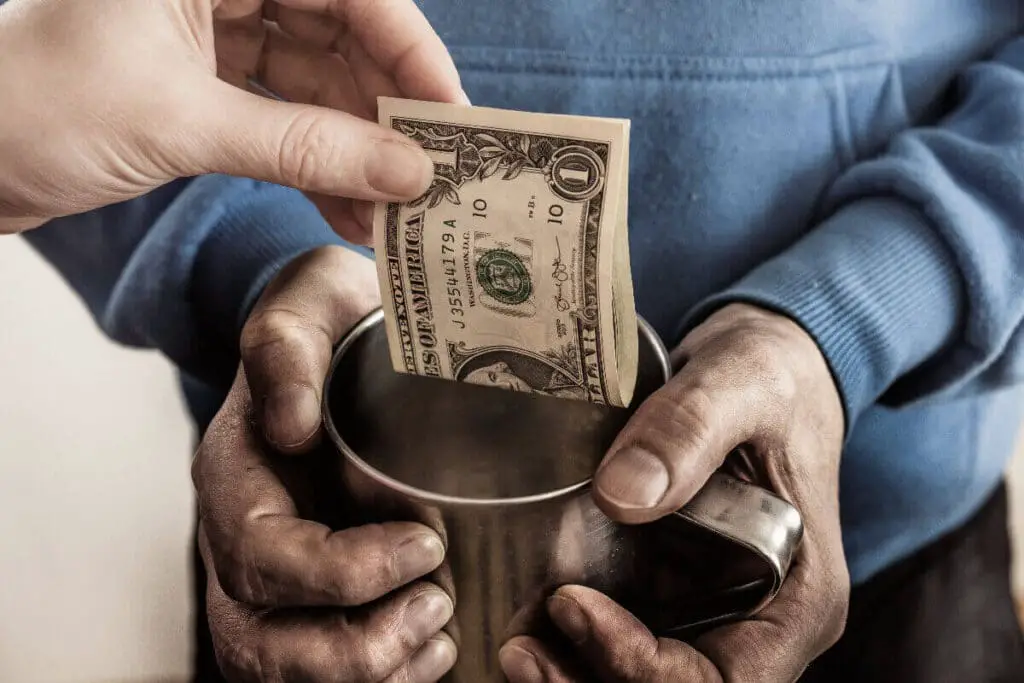The question of how much responsibility the government should bear in reducing poverty has fueled discussions for quite some time.
On the one hand, proponents of government intervention argue that a strong social safety net is essential to protect those most at risk. Conversely, critics assert that such policies can foster a dependency culture and erode individual initiative. However, a nuanced stance merges these perspectives, supporting targeted government aid for those genuinely struggling while emphasizing the need for safeguards against system exploitation.
Table of Contents
- Should A Government Financially Support Those In Poverty?
- Ten Ways Governments Can Help Those In Poverty
- 4 Checks And Balances: Ensuring Genuine Need
- Related Content
Should A Government Financially Support Those In Poverty?
The role of government in alleviating poverty has been a subject of debate for many years.

Some argue that government intervention is crucial for providing a safety net for its most vulnerable citizens, while others contend that it perpetuates dependency and undermines the work ethic. Despite the differing opinions, there’s a middle ground that embraces the necessity of government assistance for those in genuine need while also advocating for checks to prevent system abuse.
Read on as we explore why governments should have a role in supporting those in poverty and offer ten ways they can do so responsibly.
The Ethical Imperative Of Poverty
From a moral standpoint, the notion that a society is judged by how it treats its weakest members remains poignant. A government embodies its citizens’ collective will and resources, and utilizing this power to uplift the vulnerable can be seen as a fundamental ethical duty.
Poverty often leads to many other problems, from poor health to a lack of education, which impacts society. A well-designed social support system can be a force for good, breaking the cycle of poverty and promoting a healthier, more equal society.
Economic Benefits Of Helping Those In Poverty
Besides ethical reasons, supporting those in poverty has economic advantages. When people are lifted out of poverty, they become active participants in the economy, increasing productivity, consumption, and tax revenue.
Providing resources for education and healthcare means a more capable workforce that can contribute to the nation’s growth.
The Importance Of Checks And Balances When Helping Those In Poverty
While the need for support is clear, ensuring that the aid reaches those who genuinely need it is equally important.
No system is without the potential for abuse, and exploiting social support systems can lead to economic inefficiencies and a loss of public faith in these programs. Therefore, it’s vital to implement checks and balances to maintain the integrity of poverty alleviation efforts.

Ten Ways Governments Can Help Those In Poverty
In many ways, helping those in poverty can help society. But here are some ways governments can help those in poverty. Read on as we explore 10 ways.
1. Income Supplements
Direct income supplements can provide immediate relief. Programs like the Earned Income Tax Credit (EITC) in the United States have effectively reduced poverty and encouraged work.
2. Universal Basic Income (UBI)
A more radical solution, UBI provides all citizens with a standard amount of money regardless of their employment status. Pilots have shown promise, but the implementation must be carefully studied.
3. Subsidized Housing
Safe and affordable housing is essential. Rent controls or subsidies can alleviate the burden of housing costs for low-income families.
4. Food Assistance
Programs like food stamps or school meal plans can ensure no citizen goes hungry, improving health and productivity.
5. Free Or Subsidized Healthcare
Access to healthcare is often out of reach for those in poverty. A government-run or subsidized healthcare system can bridge this gap.
6. Education Grants And Scholarships
Improving access to quality education will enable upward mobility. Scholarships, grants, or free community college can level the playing field.
7. Job Training Programs
For those capable of working, targeted job training can provide them with the skills needed to secure better-paying jobs.
8. Childcare Support
The lack of affordable childcare can hinder employment for many, mainly single parents. Subsidized childcare can alleviate this.
9. Public Transportation Subsidies
Affordable public transport can broaden job opportunities by making it easier for people to commute to where their jobs are.
10. Small Business Loans For Low-Income Entrepreneurs
Encouraging entrepreneurship can be another pathway out of poverty. Low-interest loans can provide the necessary capital for starting a small business.

4 Checks And Balances: Ensuring Genuine Need
Even though all these programs are, great governments must still do checks and balances to ensure those who need it get the programs they need. Here are some ways they can do that.
Means Testing
Eligibility criteria based on income and assets can help target those most in need.
Periodic Reviews
Regularly reviewing the economic status of beneficiaries can ensure that aid is being directed where it’s most needed.
Stringent Application Processes
Detailed applications, including proof of need, can serve as a deterrent against fraudulent claims.
Data Analytics
Advanced algorithms can flag unusual patterns in claims, triggering manual reviews to root out fraud.
The question is not whether governments should support those in poverty but how they should do so responsibly. Balancing the ethical imperative and economic benefits of aiding those in need with the necessity of safeguarding against abuse is crucial.
By implementing programs like income supplements, subsidized housing, and healthcare and ensuring these programs are accessed only by those who genuinely require them, governments can play an essential role in lifting individuals out of poverty and building a stronger, more equitable society for all.
Project Sprouts would love to have you be a part of our community and help us help worthy children in North Vietnam. We cannot solve all the world’s problems, but we can do our part to help poor kids grow by giving school supplies, winter coats, boots, and other supplies.
You can find out more about Project Sprouts by clicking here or going to our give now page to donate by clicking here. As we are a grassroots organization, all funds help those in need.
Related Content
Poverty And Problems: Family
In my second article on Poverty and Problems, I will write about a topic that is perhaps quite surprising to many people: Family. Many of us have seen articles or news programs reporting on broken marriages of politicians, wealthy billionaires, or celebrities in newspapers or on television. Many people mistakenly think that it will be easier to divorce when we are rich.
You can learn more by reading Poverty And Problems: Family by clicking here.
Poverty And Problems: Migration And Immigration
As I have introduced in previous blog posts, poverty is the root cause of many social problems and ills. I want to post a series of blog posts about poverty and its effects on people and society. And in the first blog post, one of the topics receiving great attention from everyone is migration and immigration.
You can learn more by reading Poverty And Problems: Migration And Immigration by clicking here.

